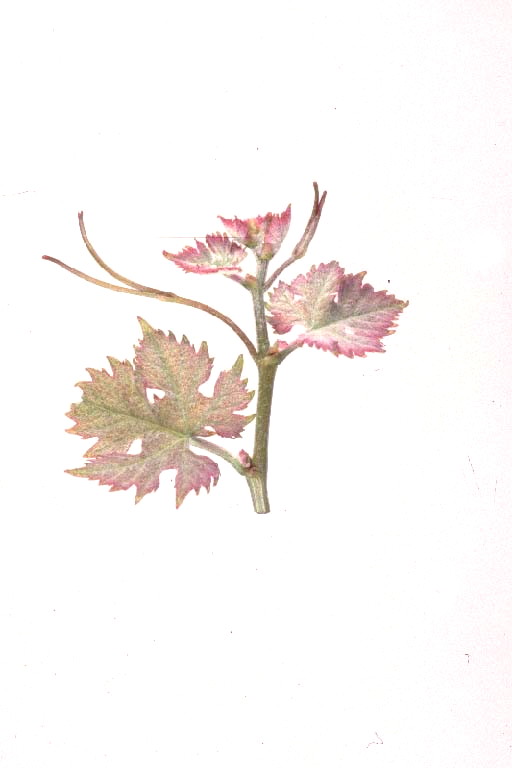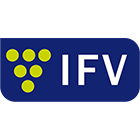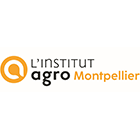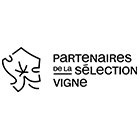Cabernet-Sauvignon
N
Wine grape variety.
The geographical origin of the variety is specified or, if this is not possible, the area in which it is traditionally cultivated. The genetic origin of the variety is also indicated whenever it is known from hybridiser data or from genetic analyses published or obtained by the teams at INRAE in Montpellier (UMR AGAP) and Vassal-Montpellier Grapevine Biological Resources Centre (CRB-Vigne).
This variety is originally from the Bordeaux region. Based on published genetic studies, this variety would result from the crossbreeding between Cabernet franc and Sauvignon.
This information indicates the normal and statutory use for the grapes.
Wine grape variety.
Name under which the variety is officially registered in the catalogue of grapevine varieties in France and under which it may be propagated and disseminated.
Cabernet-Sauvignon
Recognised alternative names that may be used to identify the propagation material of the variety in France or in other member countries of the European Union.
There is no officially recognized synonym in France nor in the other countries of the European Union, for this variety.
This information indicates on which list the variety is registered (A or B), whether it is classified for wine grapes, and in which member countries of the European Union the variety is also officially registered (for more information, see the "Legislation" menu.
In France, Cabernet-Sauvignon is officially listed in the "Catalogue of vine varieties" on the A list and classified. This variety is also listed in the catalogues of other Member States of the European Union: Austria, Bulgaria, Cyprus, Czech Republic, Germany, Greece, Hungary, Italy, Malta, Portugal, Romania, Slovakia, Slovenia and Spain.
Evolution of cultivated areas in France
The figures provided are taken from vineyard land registers (IVCC, ONIVIT, ONIVINS), general agricultural censuses (SCEES-INSEE) and the current computerised vineyard register (DGDDI, FAM).
Regional vine planting data is available on the following site: https://visionet.franceagrimer.fr/Pages/DonneesInteractivesDocs.aspx?sousmenu=observatoire%20de%20la%20viticulture.
The figures provided are taken from vineyard land registers (IVCC, ONIVIT, ONIVINS), general agricultural censuses (SCEES-INSEE) and the current computerised vineyard register (DGDDI, FAM). Regional vine planting data is available on the following site: https://visionet.franceagrimer.fr/Pages/DonneesInteractivesDocs.aspx?sousmenu=observatoire%20de%20la%20viticulture.
Year |
ha |
|
|---|---|---|
|
1958 |
7841 |
|
|
1968 |
11882 |
|
|
1979 |
22992 |
|
|
1988 |
36468 |
|
|
1998 |
49393 |
|
|
2008 |
60385 |
|
|
2018 |
47751 |
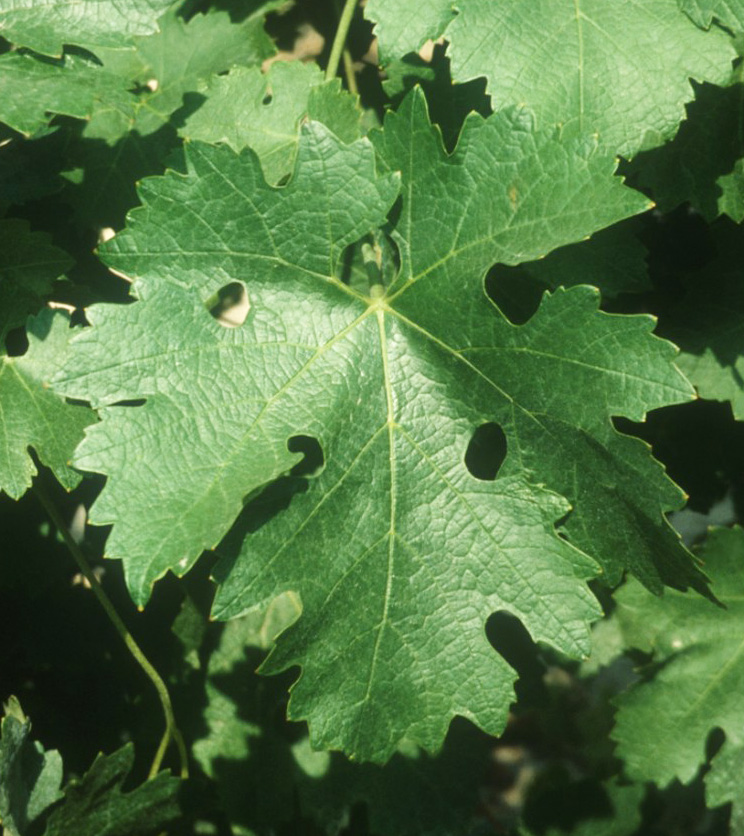
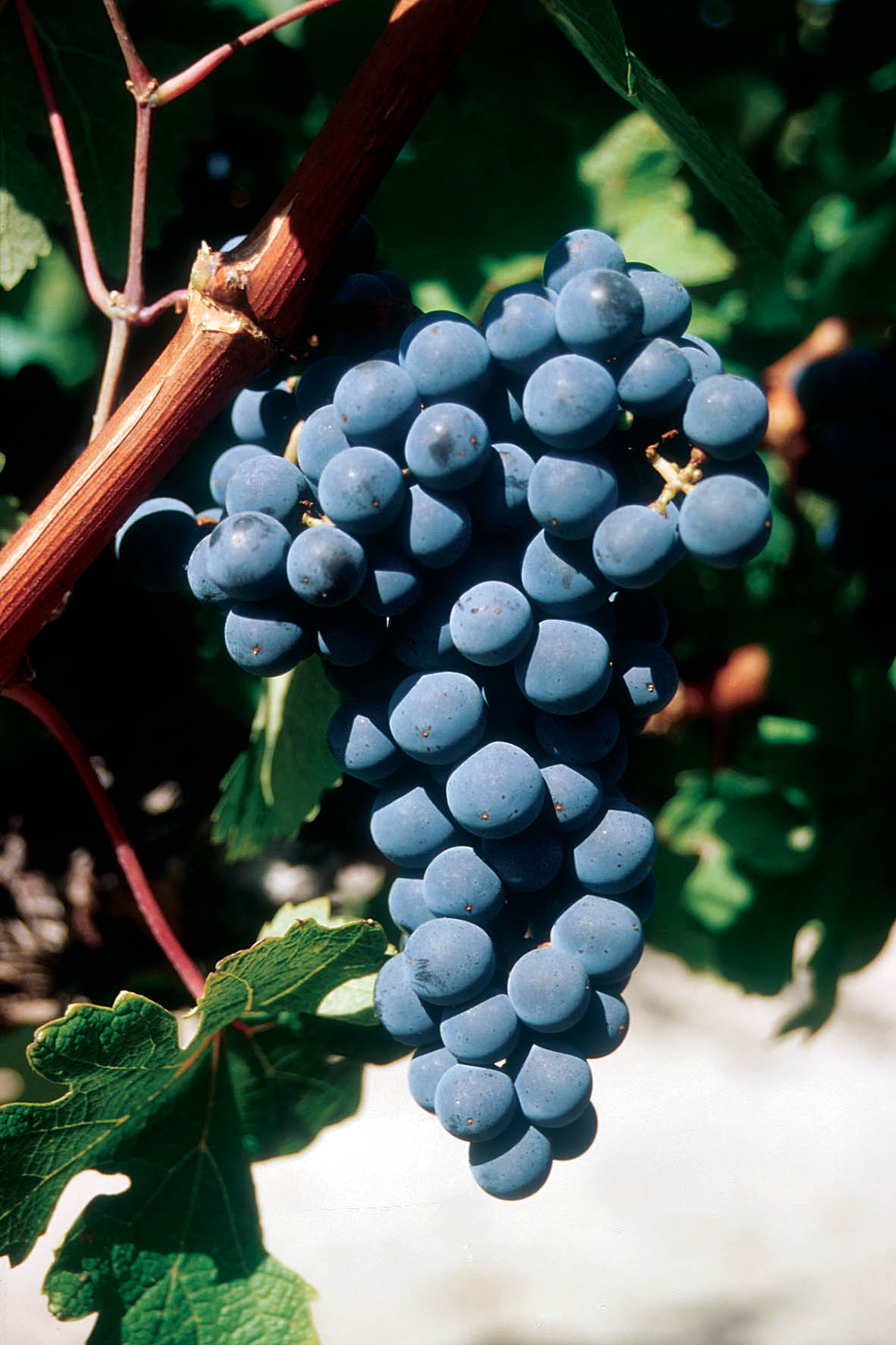
Only the principal ampelographic elements enabling the varieties to be characterised and identified are provided. They are presented according to the descriptor code recognised by the International Organisation of Vine and Wine (OIV), the International Union for the Protection of New Varieties of Plants (UPOV), the Community Plant Variety Office (OCVV) and Bioversity International (for more information, see the "Ampelographic glossary" menu). The photographs of leaves and grapes were taken in natural conditions, on the vine, in very similar situations in terms of growing conditions (sandy soil, Mediterranean coast): - Domaine de l'Espiguette (IFV), Le Grau du Roi (Gard), - Domaine de Vassal (INRAE), Marseillan (Hérault), - La Gaillarde Campus (Institut Agro | Montpellier SupAgro), Montpellier (Hérault). Only a few photographs, including the tips of bunches, were taken in other conditions.
- the red young leaves with bronze spots,
- the circular adult leaves, with seven or nine lobes, club-shaped or U-shaped lateral sinuses, a petiole sinus with slightly overlapping lobes, sometimes naked petiole veins, medium to large length teeth with convex sides, a blistered leaf blade, and on the lower side of the leaves, a low density of prostrate hairs,
- the round-shaped berries.
Genetic profile
The genetic profile of the variety is provided for the 9 microsatellite markers (or SSR markers) selected under the European programme GrapeGen06 (http://www.eu-vitis.de/index.php) and by the OIV. The absolute size values of the alleles may vary slightly from one laboratory to another, but the relative differences between the two alleles of one single microsatellite are constant. The genetic analyses were conducted by the INRAE Montpellier team (UMR AGAP) and the IFV’s Plant Material Centre.
| Microsatellite | VVS2 | VVMD5 | VVMD7 | VVMD27 | VRZAG62 | VRZAG79 | VVMD25 | VVMD28 | VVMD32 |
|---|---|---|---|---|---|---|---|---|---|
|
Allele 1 |
137 |
229 |
239 |
172 |
188 |
248 |
238 |
233 |
239 |
|
Allele 2 |
149 |
238 |
239 |
186 |
194 |
248 |
248 |
235 |
239 |
The data on suitability are the result of field observations or, if none are available, of bibliography mining and the study of bibliographic references.
Cabernet-Sauvignon has a late budburst. It is vigorous,with large-diameter vine shoots under fertile conditions, very long branches (elongated internodes) and lignified tendrils. This variety requires careful trellishing. The pruning, which can be long or short in southern areas, is relatively slow. Large pruning wounds should be avoided. The removal of woods, which are hard, also requires considerable time consuming work. Cabernet-Sauvignon frequently produces better results on gravelly and draining ground, rather acid and well-exposed. This variety sometimes suffers from dessication of the stems and this risk is increased by the use of certain rootstocks such as S04.
These remarks are also the result of field observations or, if none are available, of bibliography mining and study of bibliographic references.
Cabernet-Sauvignon is not very susceptible to grey rot. On the other hand, it is very suceptible to wood diseases (eutypa dieback, esca) and powdery mildew.
The growth stages indicated are the result of obsrvations made at the Domaine de Vassal Estate where the set of these varieties form a collection. The results are indicated compared to the Chasselas vine variety as a reference in order to make comparisons between years and different sites. As such, for information purposes, the dates for the Chasselas B growth stage at Domaine de Vassal are as follows: - Bud burst, 21 March (average over 50 years) - Grape maturity, 14 August (average over 50 years)
Bud burst: 13 days after Chasselas.
Grape maturity: mid-season, 3 weeks to 3 weeks and a half after Chasselas.
The size of grape clusters and berries indicated are based on the following scales: - Wine grape varieties Size : Very small Bunch (g) : ≤ 100 Berry (g) : 1 - Table grape varieties Bunch (g) : 150 Berry (g) : 2 - Wine grape varieties Size : Small Bunch (g) : 100 - 200 Berry (g) : 1,5 - 2 - Table grape varieties Bunch (g) : 150 - 250 Berry (g) : 2 - 3,5 - Wine grape varieties Size : Moderate Bunch (g) : 200 - 250 Berry (g) : 2 - 2,5 - Table grape varieties Bunch (g) : 250 - 400 Berry (g) : 3,5 - 5,5 - Wine grape varieties Size : Large Bunch (g) : 250 - 400 Berry (g) : 2,5 - 3,5 - Table grape varieties Bunch (g) : 400 - 700 Berry (g) : 5,5 - 8 - Wine grape varieties Size : Very large Bunch (g) : 400 Berry (g) : 3,5 - Table grape varieties Bunch (g) : 700 Berry (g) : 8 Remarks concerning the characteristics of the wines are generally based on tastings organised by juries of professionals.
The bunches and berries are small. Cabernet-Sauvignon makes wines with a very interesting tannic structure and a deep color when it has reached a proper maturity. These wines are generally suitable for ageing and maturing in wood. This variety vegetal aromas are replaced by much more pleasant and complex aromas once the grapes have reached a proper maturity. On the other hand, when vinified alone and not blended, Cabernet-Sauvignon often lacks body and fullness.
In this section, the list of certified clones is given. Information on clone conservatories is also provided.
The eighteen certified Cabernet-Sauvignon clones carry the numbers 15, 169, 170, 191, 216, 217, 218, 219, 267, 269, 337, 338, 410, 411, 412, 685, 1124 and 1125. A collection-conservatory, planted in the Bordeaux wine-growing region, includes more than 250 clones based on surveys carried out between 1966 and 1988.
Bibliography
- Catalogue des variétés et clones de vigne cultivés en France. Collectif, 2007, Ed. IFV, Le Grau-du-Roi, France.
- Documentary collections of the Centre de Ressources Biologiques de la Vigne de Vassal-Montpellier, INRAE - Institut Agro | Montpellier, Marseillan, France.
- Dictionnaire encyclopédique des cépages et de leurs synonymes. P. Galet, 2015, Ed. Libre&Solidaire, France.
- Traité général de viticulture, Ampélographie. P. Viala and V. Vermorel, 1901-1909, Ed. Masson, Paris, France.
Description of clones approved in France
In this section, the list of certified clones is given. Information on clone conservatories is also provided.
In this section, the list of certified clones is given. Information on clone conservatories is also provided.
-
Clone number
-
Brand
-
Origin
Region, department or winegrowing region in which the “clone mother plant” was identified and selected.
-
Selection
Body or bodies which selected the clone. In France, clonal selection is the responsibility of the selection organisations (themselves accredited by the ministry in charge of agriculture), usually in close collaboration with a technical partner working in a winegrowing region. For clones certified after 1999, the name of the partner or partners who took part in the selection work is also included. (NB: CA = Chamber of Agriculture).
-
Year of approval
Year in which the clone was certified by the FranceAgriMer board further to a proposal by the Vine section of the CTPS (Permanent Technical Committee for Plant Selection).
-
Agronomic Reference
Region, department or winegrowing region in which the agronomic and technological data were collected.
-
Surface in multiplication
Surface area in hectares (ha) of stock nurseries used for propagation for the year under consideration (in brackets), which allows the available potential to be evaluated. Clones with a surface area of between 0.01 and 0.10 ha are shown as <0.10 ha. Clones of limited dissemination, but for which we have technical data, are shown as <0.01 ha. Other clones are given as “low-dissemination clone”, which means that the clone has been certified only recently or has not been propagated. In both cases, only the initial material is planted in the selection centres.
-
 N
N -
15
-

-
Gironde
-
ENTAV
-
1971
-
Bordelais;
Languedoc;
Provence;
Sud-Ouest -
39.07 ha
-
Agronomic Data
-
Fertility high
-
Production level high
-
Cluster weight medium to high
-
Vigor medium
-
Berry size medium to high
-
Technological Data
-
Sugar richness medium
-
Color potential medium
-
Total acidity medium
-
Tannic structure medium
-
Oenological skills balanced and structured wines
-
Other information
-
General note clone appreciated in the South of France, good compromise between production level and quality of the harvest provided that the yield is managed and the maturity is sufficient
-
 N
N -
169
-

-
Gironde
-
ENTAV
-
1972
-
Bordelais;
Languedoc;
Sud-Ouest -
46.38 ha
-
Agronomic Data
-
Fertility low to medium
-
Production level low to medium
-
Cluster weight low to medium
-
Berry size low to medium
-
Technological Data
-
Sugar richness high
-
Color potential medium to high
-
Total acidity medium
-
Tannic structure medium to high
-
Oenological skills balanced and well-structured wines with round tannins
-
Other information
-
General note clone appreciated for its agronomic characteristics and its aptitude to produce wines suitable for ageing
-
 N
N -
170
-

-
Val-de-Loire
-
ENTAV
-
1972
-
Bordelais;
Languedoc;
Provence;
Loire-Valley -
5.39 ha
-
Agronomic Data
-
Fertility medium
-
Production level medium
-
Cluster weight medium
-
Berry size medium
-
Technological Data
-
Sugar richness medium
-
Color potential medium
-
Total acidity medium
-
Tannic structure medium
-
Oenological skills balanced wines, representative of the variety
-
Other information
-
General note representative clone of the variety
-
 N
N -
191
-

-
Gironde
-
INRA
-
1973
-
Bordelais;
Sud-Ouest;
Languedoc;
Provence;
Loire-Valley -
14.04 ha
-
Agronomic Data
-
Fertility low to medium
-
Production level low
-
Cluster weight low
-
Vigor low
-
Berry size low to medium
-
Technological Data
-
Sugar richness high
-
Color potential high
-
Total acidity medium
-
Tannic structure high
-
Oenological skills colored and well-structured wines
-
Other information
-
General note clone carrying the leafroll associated virus 2. Tip of the young shoot and young leaves more bronzed. Risk of maturity blockage if water stress is too high. Clone appreciated for its agronomic characteristics and its aptitude for the production of wines suitable for ageing.
-
 N
N -
216
-

-
Val-de-Loire
-
ENTAV
-
1973
-
Languedoc;
Provence;
Loire-Valley -
0.30 ha
-
Agronomic Data
-
Fertility high
-
Production level high
-
Cluster weight medium
-
Technological Data
-
Sugar richness low to medium
-
Total acidity medium
-
Oenological skills representative wines of the variety
-
 N
N -
217
-

-
Val-de-Loire
-
ENTAV
-
1973
-
Languedoc;
Provence;
Loire-Valley -
1.16 ha
-
Agronomic Data
-
Fertility medium
-
Production level high
-
Cluster weight medium
-
Technological Data
-
Sugar richness medium
-
Total acidity medium
-
Oenological skills representative wines of the variety
-
 N
N -
218
-

-
Gironde
-
ENTAV
-
1973
-
Bordelais
-
-
-
Agronomic Data
-
Fertility medium to high
-
Production level medium to high
-
Cluster weight medium
-
Technological Data
-
Sugar richness medium
-
Oenological skills representative wines of the variety
-
 N
N -
219
-

-
Val-de-Loire
-
ENTAV
-
1973
-
Languedoc;
Loire-Valley -
0.42 ha
-
Agronomic Data
-
Fertility medium
-
Production level medium
-
Cluster weight medium
-
Technological Data
-
Sugar richness low to medium
-
Total acidity medium
-
Oenological skills representative wines of the variety
-
 N
N -
267
-

-
Gironde
-
ENTAV
-
1973
-
Loire-Valley
-
-
-
Agronomic Data
-
Fertility medium to high
-
Production level high
-
Cluster weight medium to high
-
Technological Data
-
Sugar richness low to medium
-
Total acidity low to medium
-
Oenological skills representative wines of the variety
-
 N
N -
269
-

-
Gironde
-
ENTAV
-
1973
-
Loire-Valley
-
-
-
Agronomic Data
-
Fertility high
-
Production level high
-
Cluster weight medium
-
Technological Data
-
Sugar richness medium
-
Total acidity medium
-
Oenological skills representative wines of the variety
-
 N
N -
337
-

-
Gironde
-
INRA
-
1975
-
Bordelais
-
28.39 ha
-
Agronomic Data
-
Fertility medium
-
Production level medium
-
Cluster weight medium
-
Berry size medium
-
Technological Data
-
Sugar richness medium to high
-
Color potential medium to high
-
Total acidity medium
-
Tannic structure medium to high
-
Oenological skills rich and structured wines
-
Other information
-
General note clone carrying the leafroll associated virus 2. Slightly shorter growing cycle. Clone appreciated for its agronomic characteristics and its aptitude for producing wines suitable for ageing.
-
 N
N -
338
-

-
Gironde
-
INRA
-
1975
-
Bordelais;
Languedoc -
9.68 ha
-
Agronomic Data
-
Fertility medium
-
Production level medium
-
Cluster weight medium to high
-
Berry size medium
-
Technological Data
-
Sugar richness medium
-
Color potential medium to high
-
Total acidity medium
-
Tannic structure medium to high
-
Oenological skills balanced wines, representative of the variety
-
 N
N -
410
-

-
Gironde
-
ENTAV
-
1976
-
Bordelais
-
-
-
Agronomic Data
-
Fertility medium
-
Production level medium
-
Cluster weight medium
-
Technological Data
-
Sugar richness medium
-
Total acidity medium
-
Oenological skills representative wines of the variety
-
 N
N -
411
-

-
Gironde
-
ENTAV
-
1976
-
Bordelais
-
-
-
Agronomic Data
-
Fertility medium
-
Production level medium
-
Cluster weight medium
-
Technological Data
-
Sugar richness medium
-
Total acidity medium
-
Oenological skills representative wines of the variety
-
 N
N -
412
-

-
Gironde
-
ENTAV
-
1976
-
Bordelais;
Languedoc;
Provence -
0.59 ha
-
Agronomic Data
-
Fertility low to medium
-
Production level low
-
Cluster weight low to medium
-
Berry size low to medium
-
Technological Data
-
Sugar richness high
-
Color potential medium to high
-
Total acidity medium
-
Tannic structure medium to high
-
Oenological skills balanced and structured wines
-
Other information
-
General note clone appreciated for its agronomic characteristics and its aptitude to produce wines suitable for ageing
-
 N
N -
685
-

-
Pyrénées-Atlantiques
-
ENTAV
-
1980
-
Bordelais;
Provence;
Sud-Ouest -
19.68 ha
-
Agronomic Data
-
Fertility high
-
Production level high
-
Cluster weight high
-
Berry size medium
-
Technological Data
-
Sugar richness medium
-
Color potential medium
-
Total acidity medium
-
Tannic structure medium
-
Oenological skills representative wines of the variety
-
Other information
-
General note more productive and more vigorous clone, slightly later
-
 N
N -
1124
-

-
Gironde
-
CA 33 - IFV
-
2009
-
Bordelais
-
-
-
Agronomic Data
-
Fertility medium
-
Production level medium
-
Cluster weight medium
-
Vigor medium to high
-
Berry size low to medium
-
Susceptibility to Botrytis medium
-
Technological Data
-
Sugar richness medium to high
-
Color potential high
-
Total acidity medium
-
Tannic structure high
-
Oenological skills colored and well-structured wines
-
Other information
-
General note clone resulting from clone 191 sanitized by apex micrografting. It is free of the leafroll associated virus 2
-
Agrotecnica note Clone appreciated for its agronomic characteristics and its aptitude for producing wines suitable for ageing.
-
Agronomic note higher vigor than clone 191
-
 N
N -
1125
-

-
Gironde
-
CA 33 - IFV
-
2009
-
Bordelais
-
-
-
Agronomic Data
-
Fertility medium
-
Production level medium
-
Cluster weight medium
-
Vigor medium
-
Berry size medium
-
Susceptibility to Botrytis medium
-
Technological Data
-
Sugar richness medium to high
-
Color potential high
-
Total acidity medium
-
Tannic structure medium to high
-
Oenological skills wines appreciated for their organoleptic quality, particularly regarding balance, color and structure
-
Other information
-
General note clone belonging to another health family of clone 337. It is free of the leafroll associated virus 2
-
Agrotecnica note Clone appreciated for its agronomic characteristics and its aptitude for producing wines suitable for ageing.
-
Agronomic note slightly earlier maturity
